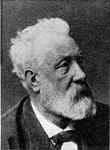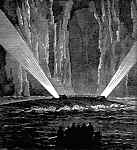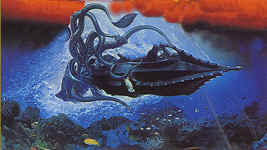Michael Crichton
There are worse howlers than the hissing ink-jet printers in The Terminal Man and other of his books. Much worse. In the same on he describes a Douglas DC10 with two engines under each wing, sitting in an United Airlines hangar. Worse, he rather emphatically dates this as Friday, 12th March 1971 while the DC10 was not certificated before July 29 that year. He obviously changed a DC8 into a DC10, which has one engine under each wing and one in the tail fin, at the last moment to be up-to-date, without checking.
Always check, Mike! Let this be a lesson to you. No wonder Steven Spielberg likes him so much. But I admit studying aircraft is rather a hobby of mine.
There's a sort of autobiography of his that's so superstitious, it drove me near crazy. Auras, ESP, it's all grist to his mill. One reviewer described how he burst out laughing upon reading how Crichton kneels down and apologizes for having hurt its feelings - to a cactus.
But he did give me great pleasure with his book The Great Train Robbery. |













